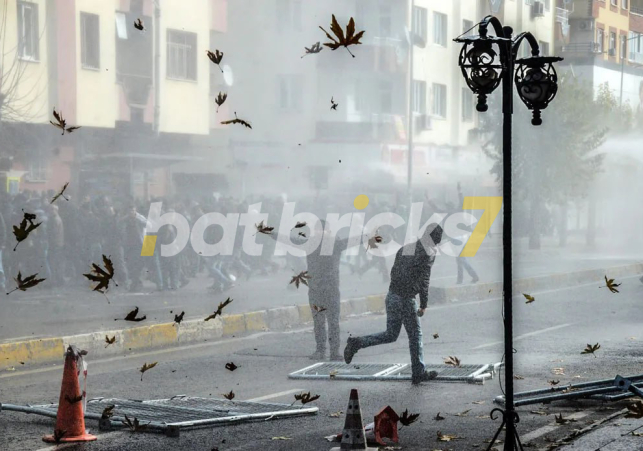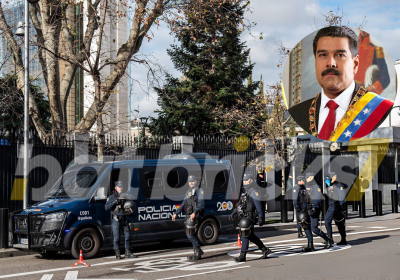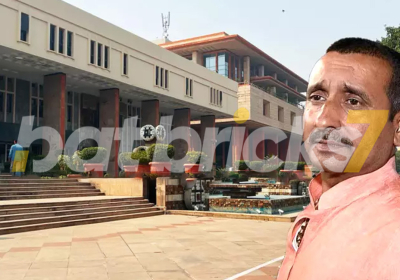Israel and Hezbollah Settled into an Uneasy Ceasefire Last Week Armed Islamist Opposition Forces Stormed Out of Syria Northwest Seizing the Nation's Second CityAleppo over the Weekend before Advancing South on the Road to Damascus

Kurds' dream of self-rule under threat as Turkish-backed forces sweep across Syria
Islamist rebels and armed groups backed by Ankara swept across Syria this past week, seizing Aleppo and putting President Bashar al-Assad's soldiers to flight.
Having achieved a hard-won autonomy in the turmoil of the Syrian Civil War, the country's Kurds now find themselves once again cornered between the Damascus regime, Islamist insurgents and Turkish-backed troops eager to put an end to Kurdish self-rule.
As Israel and Hezbollah settled into an uneasy ceasefire last week, armed Islamist opposition forces stormed out of Syria's northwest, seizing the nation's second cityAleppo over the weekend before advancing south on the road to Damascus.
While the forces of Hayat Tahrir al-Sham (HTS) an offshoot of al Qaeda's former Syria branch Jabhat al-Nusra surged inwards from Idlib, another assault came pouring down from the northern borderlands with Turkey.
These groups backed by Ankara and calling themselves the Syrian National Army began to seize territory northeast of Aleppo, including the town of Tal Rifaat and surrounding villages on December 1.
But Tal Rifaat was not being held by Assad's loyalists. Instead, the Syrian National Army has once again set its sights on territory held by the Kurdish People's Protection Units (YPG), the iron core of the US-backed Syrian Democratic Forces (SDF) - a key Western ally in the fight against the Islamic State (IS) group.
The fighting has been fierce. Already, tens of thousands of Kurds have begun the long winter march east across the Euphrates River, where the Kurdish-led SDF still holds sway.
In Aleppo, where SDF troops have held the Kurdish neighbourhoods of Ashrafiyeh and Sheikh Maqsoud throughout the civil war, the triumphant HTS negotiated the Kurdish troops' withdrawal from the city, weapons still in hand.
Hours after Aleppo fell, footage emerged of convoys of Kurdish fighters filing out of the city under the watchful gaze of HTS troops.
Worse may await them beyond the city limits. Having seized a hard-won autonomy in the early days of the Syrian Civil War, the country's Kurds have for the past few years come under heavy assault by Turkey and the Syrian armed groups that it backs.
Ankara views the autonomous Kurdish regions in Syria as a creation and extension of the Kurdish Workers' Party (PKK), a group that has for years fought for Kurdish self-rule and is banned in Turkey as a terrorist organisation.
Now, with Assad's global allies exhausted by wars of attrition in Ukraine and Lebanon, Ankara seems once again set on strangling the Kurdish dream of self-governance in the crib.
Surrender or die
Fawaz Gerges, professor of international relations at the London School of Economics, said that the militants' lightning assault could cost the Kurds dearly.
"The Kurds stand to lose the most," he said. "Their very autonomy, the security of their communities.
I think Turkey has been biding its time and waiting for the right moment to strike, and the pro-Turkish opposition forces have really launched a shock attack, not only against the Assad government, but even against the Kurds.
In Aleppo, the Kurds were told either to surrender or to die - and they decided to surrender."
While HTS appears to be trying to avoid direct clashes with Kurdish forces, Kurdish civilians now living under the banners of the SNA have reported having their homes seized by Turkish-backed troops. As many as half a million Kurds are believed to live in Aleppo and surrounding towns and villages west of the Euphrates.
Just what their lives are likely to be like under the new dispensation remains a question that few are keen to learn the answer to.
Dara Salam, a teaching fellow at SOAS University of London's department of politics and international studies, said that Kurdish communities in Syria's northwest were now once again at the mercy of Ankara's ambitions.
"The sole aim of Turkey-backed SNA is to implement Turkey's Syria policy, that is, destroying the Kurdish entity and having the upper hand over Assad's regime in Syria," he said.
"As the conflict in the past days unravels, Kurds once again face displacement, massacres and persecution at the hands of these jihadi-Islamist groups in many places like Aleppo, Tal Rifaat and Shahba."
For years now, that policy has been put into increasingly bloody practice.
In 2018, Turkish air strikes heralded the seizure of Afrin, the western-most canton of the Autonomous Administration of North and East Syria - more commonly known as Rojava.
The occupying SNA has been accused of leading campaigns of mass violence against the Kurdish civilian population.
Dastan Jasim, a research fellow at the GIGA Institute for Middle East Studies, said Syria's Kurds had good reason to be fearful given what she described as years of abuses against Kurdish communities in parts of the country's northwest held by the SNA and Islamist opposition groups.
"The only basis on which Kurds can judge that question is their own experience," she said.
"We're heading towards six years of occupation of Afrin, for example, and Kurdish life in Afrin is a living hell it's basically impossible.
Sexual violence is rampant, there have been kidnappings of people just ordinary Kurdish people that are accused out of the blue of being PKK sympathisers are being abducted and killed."
'In the eye of the storm'
Jasim said that the country's Kurdish communities had long struggled to find a place within the broader array of opposition forces that rose up against Assad more than a decade ago.
"In 2011 when the opposition came up, let's remember that especially in Aleppo the Kurdish neighbourhoods were very active when it was about protesting against Assad," she said.
"People were obviously not happy with the situation there have been many Kurdish uprisings that were attacked very violently.
But at the same time, the Kurds saw there was no space for them, there was no space for a discussion of Kurdish autonomy, Kurdish self-rule.
A lot of the elements are very nationalist, and that's what we're seeing right now."
Having proved themselves to be a fierce and disciplined force against the emerging Islamic State group, the Kurds soon found themselves leading the US-backed SDF.
Despite frictions between Washington and Ankara over US support for what Turkey considered to be violent separatist groups, the SDF played a crucial role in reclaiming territory from the Islamic State group.
Since then, though, the Kurds have been increasingly isolated. In 2019, then US president Donald Trump announced his plans to pull the last remaining American troops from Syria, leaving the Kurds undefended in the face of Turkey's advance.
Although Trump's generals managed to convince the president to keep a contingent of troops in the region to secure oil fields, guard against Islamic State group remnants and maintain pressure on Iran, it was a bitter blow for a community already under assault by a US ally and NATO member.
Now, with Israel hammering Iran-backed groups across Syria and Trump set to return to the White House in January, Gerges said that forces across the Middle East were anxious to strengthen their hands before inauguration day.
"This is just the beginning I think what Turkey and its Syrian allies are trying to do is to really basically change the current balance of power on the Turkish-Syrian borders before Trump enters the White House," he said.
"They're using the retreat of the Assad forces as a means to weaken and degrade the pro-American Kurdish forces.
All in all it's not just that the Assad government is losing territories, but I think the Kurds are also in the eye of the storm.
And I think by the end of the current round, their areas will shrink, their power will be degraded and they will be facing bitter choices."
Gerges said that the next days and weeks of fighting could determine the very survival of the Kurds' long-held dream of self-governance.
"This is what's going on in the Kurds' minds that's why they called a general mobilisation," he said.
"This is one of the few times that they're facing in their view a threat of this dimension.
It's no longer really a military threat, it goes to the very heart of what they've been trying to achieve since 2011 full autonomy and a pathway to statehood."





